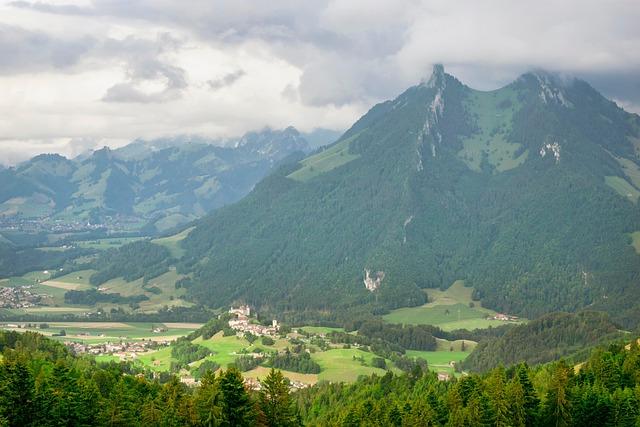In a move signaling strengthened diplomatic ties and strategic interests in the Arctic, Canada has announced plans to open a consulate in Greenland, following heightened international attention on the island sparked by former U.S. President Donald Trump’s attempt to purchase the territory. The decision underscores Canada’s commitment to Arctic engagement amid growing geopolitical competition in the region and comes as countries increasingly vie for influence over Greenland’s vast natural resources and strategic location.
Canada Expands Arctic Presence with New Greenland Consulate
In a strategic move marking its heightened engagement in the Arctic, Canada announced plans to establish a new consulate in Greenland. This diplomatic expansion underscores Ottawa’s intention to strengthen ties with Nuuk and play a more prominent role in Arctic affairs, particularly amid growing geopolitical interest in the region. The decision follows U.S. President Donald Trump’s high-profile proposal to purchase Greenland, which reignited global focus on the island’s strategic and economic significance.
The Canadian consulate will serve as a hub for collaboration on key issues such as sustainable resource development, climate research, and indigenous partnerships. Officials highlighted several priorities:
- Enhancing Arctic sovereignty and security cooperation
- Facilitating trade and cross-border investment
- Supporting environmental and scientific initiatives in cold climates
| Key Areas of Focus | Expected Benefits |
|---|---|
| Environmental Monitoring | Improved climate data sharing and joint research |
| Economic Cooperation | Boosting trade and resource development in Arctic corridors |
| Indigenous Engagement | Strengthening cultural and policy collaboration |
Strategic Implications of Canada’s Move Amid Rising Geopolitical Interest
Canada’s decision to open a consulate in Greenland signifies a calculated move in the evolving Arctic geopolitical landscape. As global powers increasingly eye the Arctic for strategic, economic, and environmental interests, Canada aims to solidify its presence and influence in the region. The consulate will facilitate closer diplomatic relations with Greenland, fostering cooperation on matters such as natural resource management, indigenous affairs, and climate change-a growing issue that transcends borders in the Arctic.
With the backdrop of the recent US-led discussions on acquiring Greenland, Canada’s initiative is more than symbolic. It reflects an understanding that the Arctic is becoming a pivotal arena for international rivalry and collaboration. Canada intends to leverage this foothold by:
- Enhancing bilateral trade and investment opportunities in energy and minerals.
- Supporting sustainable development projects in Greenland’s communities.
- Increasing intelligence-sharing and security cooperation to monitor Arctic shipping routes and military activity.
| Strategic Focus | Canada’s Approach | Expected Outcome |
|---|---|---|
| Resource Development | Partnerships with Greenlandic authorities | Secure supply chains in minerals and energy |
| Security & Surveillance | Consulate-led intelligence networks | Enhanced monitoring of Arctic transit routes |
| Environmental Collaboration | Joint research initiatives on climate change | Improved policies for Arctic resilience and sustainability |
Recommendations for Strengthening Diplomatic and Economic Ties in the North
To foster a more robust partnership in the Arctic region, it is essential that Canada and Greenland invest in collaborative frameworks that extend beyond diplomatic formalities. Prioritizing joint initiatives in sustainable resource management, climate change research, and indigenous community engagement can create a solid foundation for long-term cooperation. Additionally, enhancing infrastructure connectivity through improved shipping routes and communication networks will unlock economic opportunities, benefitting both economies while addressing regional challenges.
Strategic actions for immediate focus include:
- Establishing bilateral task forces focused on Arctic environmental monitoring and disaster response.
- Promoting cross-border investment incentives to stimulate Greenland’s emerging industries.
- Expanding educational exchanges to build mutual understanding and share technical expertise.
- Leveraging multilateral forums to align policies on Arctic sovereignty and security issues.
| Area | Opportunity | Expected Outcome |
|---|---|---|
| Energy | Joint renewable projects | Reduced carbon footprint |
| Trade | Tariff reductions | Increased bilateral commerce |
| Tourism | Collaborative marketing campaigns | Boosted northern visitor numbers |
To Wrap It Up
As Canada moves forward with plans to open a consulate in Greenland, the development signals a deepening of diplomatic and economic ties in the Arctic region. This decision comes amid heightened international interest in Greenland’s strategic location and natural resources, following increased attention from former U.S. President Donald Trump’s administration. The new consulate is expected to enhance bilateral cooperation on issues ranging from climate change to security, marking a significant step in Canada’s Arctic engagement strategy.




